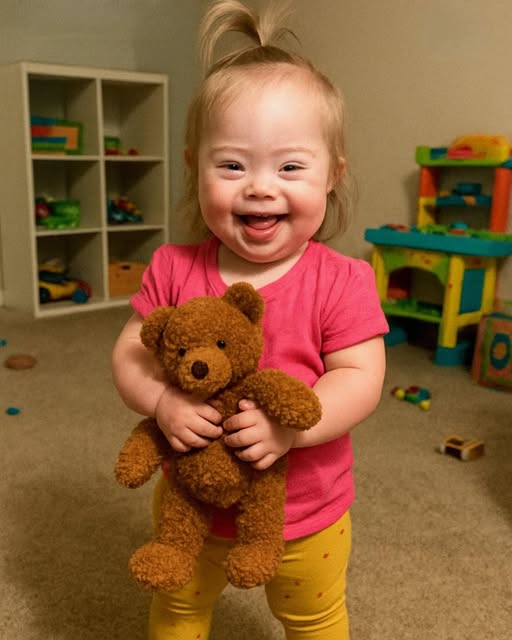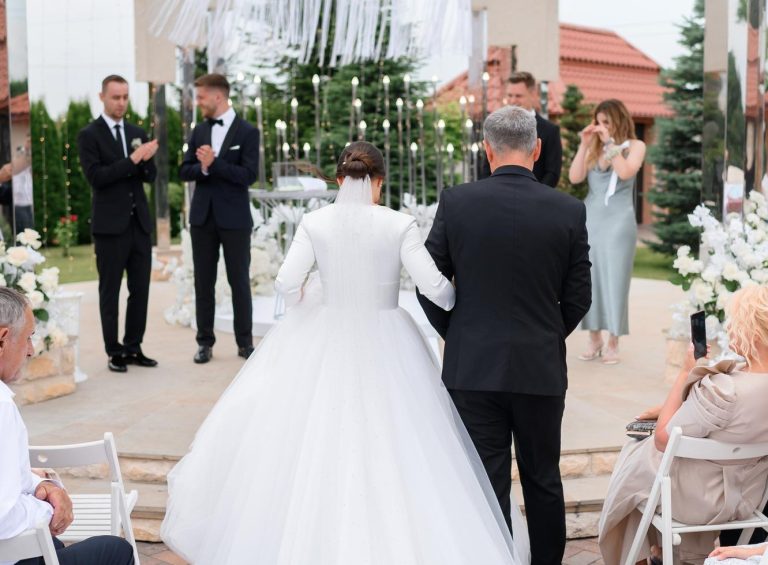At seventy-three, Margaret Hayes had long accepted that her best years were behind her. Six winters had passed since her husband, Walter, died, and the world had grown quieter — slower — leaving behind an ache that lingered in the corners of her empty home.
Each morning, she brewed a single cup of tea and sat by the kitchen window, watching frost gather on the glass. The once-bustling house in Ashbrook now echoed with silence — memories of laughter, birthdays, and Sunday dinners drifting like ghosts through the halls.
Her two sons called once a week, their conversations brief, polite, and distant. Friends had either moved away or passed on. The garden that once overflowed with tulips and roses was now tangled with ivy. Some nights, she would sit in the dark and whisper to herself, Maybe this is all that’s left — waiting quietly for the end.
But life, as it turned out, wasn’t done with her yet.
The News That Changed Everything
It began one cold November afternoon. Margaret was folding laundry when the radio crackled to life.
“An infant girl with Down syndrome was found abandoned outside St. Mary’s Hospital. Authorities say she’s in stable condition and awaiting foster placement.”
Margaret froze, her hands trembling over a towel. The story moved on, but she couldn’t. The word abandoned clung to her chest like a weight. She couldn’t stop picturing the baby — small, helpless, alone.
For days, the image haunted her. When she closed her eyes, she could almost see the child’s face. She felt something she hadn’t felt in years — a quiet, insistent calling.
Finally, she couldn’t ignore it any longer. She drove to St. Mary’s Hospital, unsure what she would say, only that she had to go.
In the neonatal unit, a nurse led her to a small crib. Inside, wrapped in a yellow blanket, lay a baby with delicate features and tiny clenched fists. Margaret pressed her palm to the glass — and the baby stirred, stretching slightly, as if responding to her touch.
That was it. Something inside her cracked open and filled with light.
“Her name,” Margaret whispered, “will be Clara. Because she’s a bright light in a dark world.”
Defying the Doubts
When Margaret told her sons, the reaction was swift and harsh.
“Mom, you can’t do this,” her eldest, Daniel, said over the phone. “You’re seventy-three years old! You can barely carry groceries, let alone a baby.”
“You don’t understand,” she replied softly. “I feel alive again.”
“Alive? You’ll wear yourself out. This isn’t love — it’s insanity.”
Neighbors whispered in the grocery aisles. “She’s lost it,” one woman said. “A baby with Down syndrome? At her age?”
But Margaret didn’t waver. Behind her gentle demeanor was iron will.
She took parenting classes, met with pediatric specialists, and transformed her home — painting the nursery a soft cream, setting up a cradle by her bed, knitting tiny sweaters despite the ache in her hands.
And when she finally brought Clara home, her quiet house came alive again.
The First Year of Love
The first year tested her strength in every way. Clara struggled with feeding, and sleepless nights took their toll. Margaret’s back ached, her hands shook — but every time she felt her resolve slipping, she would look into Clara’s wide, trusting eyes, and her energy would return.
Neighbors who once doubted her began to drop by with small gifts: a blanket here, a box of diapers there. Laughter filled the rooms again. Clara’s giggles echoed through the house.
Every milestone felt monumental — her first smile, her first time rolling over, her first soft “Nana.” Each time, Margaret would press a kiss to her forehead and whisper, “You’re my reason for waking up.”
An Unexpected Knock
One year later, on a mild spring morning, a black car pulled into her driveway. Two men stepped out — both in suits, carrying briefcases.
“Mrs. Hayes?” one asked. “We represent the estate of the late Mr. and Mrs. Linwood — Clara’s biological parents.”
Margaret’s pulse quickened. “What about them?”
“They passed away in a house fire in California. Clara is their sole heir.”
The men explained that Clara’s parents had been wealthy tech entrepreneurs — founders of a multimillion-dollar software company. With no living relatives, their entire estate now legally belonged to Clara: homes, cars, investments, and trust funds.
“You could move into their estate,” one of the men said. “You’d have staff, medical care, anything you need.”
Margaret shook her head.
“I didn’t take Clara in for what she might give me,” she said quietly. “I took her in for what she already is — love.”
She requested that the assets be liquidated and the funds used to help others like Clara.
A Legacy of Kindness
With the inheritance, Margaret founded The Clara Foundation, a nonprofit dedicated to children with Down syndrome. It offered therapy, art programs, and family support.
She also established The Willow Sanctuary, an animal refuge outside Ashbrook where neglected animals could heal.
At first, locals dismissed it as another one of Margaret’s whims. But slowly, they began to see — she wasn’t building a charity. She was building a community of compassion.
Clara grew up surrounded by animals and love. By ten, she was painting murals on barn walls and singing to the horses.
At a school assembly, she once stood on stage and declared with a radiant smile:
“My grandma says I can do anything — and I believe her.”
The crowd erupted in applause. Margaret wept quietly in the back row.
The Circle of Love
Years passed. The sanctuary flourished, employing dozens and rescuing hundreds of animals. Visitors came from across the state to volunteer.
One summer, Clara — now twenty-two — met Evan, a kind young man with Down syndrome who helped care for the goats. Their friendship blossomed naturally, and in time, so did love.
On a warm June afternoon, surrounded by friends, family, and the animals they’d saved, Clara and Evan were married in the sanctuary garden. Doves soared overhead. Roses bloomed brighter than ever.
Margaret, now in her late eighties, sat in the front row, clutching her late husband’s handkerchief. Smiling through tears, she whispered, “You did it, my girl. You found your forever.”
A Peaceful Goodbye
In her final years, Margaret’s body grew frail, but her heart remained strong. She spent her mornings on the porch, watching Clara and Evan walk hand in hand through the fields. The laughter drifting from the sanctuary was her favorite song.
When she passed away peacefully at ninety-one, she left behind no mansion, no jewels — only a foundation, a sanctuary, and a legacy built on love.
At the entrance to The Willow Sanctuary, a bronze plaque was placed in her memory:
“For every child and every creature who was ever told they were unwanted — you are loved here.”
Every year on her birthday, Clara places a single white rose beneath that plaque and whispers, “Thank you for choosing love.”
Because Margaret Hayes proved something timeless and true — that love, when chosen freely, doesn’t fade with age or death. It multiplies, quietly and endlessly, leaving the world softer and kinder than it was before.

Emily Johnson is a critically acclaimed essayist and novelist known for her thought-provoking works centered on feminism, women’s rights, and modern relationships. Born and raised in Portland, Oregon, Emily grew up with a deep love of books, often spending her afternoons at her local library. She went on to study literature and gender studies at UCLA, where she became deeply involved in activism and began publishing essays in campus journals. Her debut essay collection, Voices Unbound, struck a chord with readers nationwide for its fearless exploration of gender dynamics, identity, and the challenges faced by women in contemporary society. Emily later transitioned into fiction, writing novels that balance compelling storytelling with social commentary. Her protagonists are often strong, multidimensional women navigating love, ambition, and the struggles of everyday life, making her a favorite among readers who crave authentic, relatable narratives. Critics praise her ability to merge personal intimacy with universal themes. Off the page, Emily is an advocate for women in publishing, leading workshops that encourage young female writers to embrace their voices. She lives in Seattle with her partner and two rescue cats, where she continues to write, teach, and inspire a new generation of storytellers.









